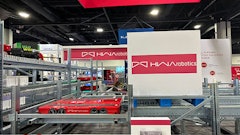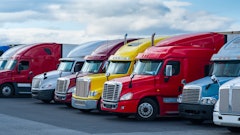
Our featured Green Supply Chain Award winner, Denver-based WhiteWave Foods, produces, distributes and sells a variety of plant-based foods and beverages, throughout North America and Europe. Along with its “good-for-you” products, WhiteWave also is committed to a “good-for-you” sustainability program, including initiatives targeting sustainable ingredient sourcing, water conservation, greenhouse gas emissions, packaging and GMOs.
WhiteWave recognizes that how it makes its products is just as important as what it makes. Sustainability is embedded in how it does business, and this includes its supply chain strategy, specifically, with a commitment to responsible sourcing of materials and sustainable packaging initiatives that address upstream and downstream solutions.
“At WhiteWave, we recognize that how we make our products is just as important as what we make. Simply put, sustainability is embedded in how WhiteWave does business,” said Dan Poland, Senior Vice President, Supply Chain North America for WhiteWave Foods. “An important component of this includes our commitment to creating a more sustainable supply chain in terms of how we source, produce and distribute our products to consumers.”
WhiteWave focuses its sourcing principles in three areas:
- Transparency: Build trust with all key stakeholders because consumers deserve to know where their food comes from, what’s in it, and how ingredients and materials are sourced.
- Continuous Improvement: Build awareness amongst consumers, so they in turn can push us all to the next level.
- Engaging as Leaders: employ a holistic approach, engaging all key stakeholders and experts to create change within the supply chain.
In 2014, the company launched its WhiteWave Foods Supplier Code of Conduct as the next step in its responsible sourcing evolution. As part of the program, WhiteWave is committed to mapping the supply chains of its most significant ingredients, including cocoa, almonds and coconut, in addition to palm and soy, in an effort to increase transparency and lessen the company’s environmental impact. Ranging from resource and business management to energy and transportation, WhiteWave has focused on several areas to better manage its sustainable supply chain.
Energy efficiency: WhiteWave conducts energy audits at its manufacturing plants and has onsite champions bringing forward efficiency and reduction projects. The company also offsets much of its energy use through renewable energy certificates. Water conservation: In addition to a commitment to using less water, WhiteWave also invests in water restoration projects (or certificates) to balance its water footprint. Business management: Sustainability is a prominent area of focus in the company’s strategic growth plan and a consideration in all business decisions. Sustainable packaging: WhiteWave designs all of its packaging with an eye to sustainability, which is focused on using the least amount of the right kind of packaging materials without compromising product quality or safety.
Quality metrics and analysis exist at all levels of the supply chain. WhiteWave used Global Reporting Initiative (GRI) framework for its first sustainability report and participated in the Carbon Disclosure Project (CDP) to report sustainability metrics against international standards. Internally, WhiteWave created a set of targets to measure and manage its progress against a variety of sustainability initiatives. These targets aim to reduce the impacts of the company’s operations, from manufacturing to administrative facilities to transportation and sourcing. Particular areas of focus for the company include its energy use, GHG emissions, water consumption, solid waste to landfill and finished product transportation. WhiteWave tracks progress in these areas with the use of key performance metrics including energy usage, emissions levels, waste output, recycling data, transportation costs, fuel savings and material/ingredient sourcing data. In terms of energy and water use specifically, audits conducted in 2013 led to the development of a strategic roadmap designed to help the company move to a more environmentally responsible supply chain.
WhiteWave has exceeded its 2013 goals of a 25 percent reduction in greenhouse gas emissions, a 30 percent reduction in waste-to-landfill and a 15 percent reduction in non-ingredient water usage. In 2013, the company offset more than 97.2 million kilowatt-hours through renewable energy certificates and restored close to 183.7 million gallons of water through water restoration certificates.
The company regularly evaluates and implements new sustainability-related initiatives designed to protect and preserve the planet’s natural resources. It isn’t just about producing great-tasting food, they say, it’s also about doing so in a way that’s good for people and the planet.
Meet Our Other Green Award Winners
 With its Crossbow product, ArrowStream (www.arrowstream.com) drives greater efficiency in inbound freight by establishing collaborative decision-making between purchasing and logistics and connecting existing replenishment and transportation management systems. Supply chain teams can proactively plan the optimal product flow into distribution facilities, increasing truck utilization, and dramatically reducing miles driven. With fewer trucks on the road, the carbon footprint is reduced. Using Crossbow across a variety of supply chain organizations, ArrowStream has measured an average mile reduction of 10 percent.
With its Crossbow product, ArrowStream (www.arrowstream.com) drives greater efficiency in inbound freight by establishing collaborative decision-making between purchasing and logistics and connecting existing replenishment and transportation management systems. Supply chain teams can proactively plan the optimal product flow into distribution facilities, increasing truck utilization, and dramatically reducing miles driven. With fewer trucks on the road, the carbon footprint is reduced. Using Crossbow across a variety of supply chain organizations, ArrowStream has measured an average mile reduction of 10 percent.
A Basware (www.basware.com) customer in the consumer electronics, lighting and healthcare space wanted to keep its carbon footprint as small as possible. It began an outbound e-invoicing project, sending e-invoices from several business units to its integrated EDI partners, sending almost 500,000 e-invoices across Europe alone. The company reduced its paper flow to a minimum, while providing customers with accurate information. Through e-invoicing, the company has been able to optimize the invoicing process to ensure maximum energy savings and efficiency.
 From energy efficient warehouse upgrades to its Retailer Consolidation Program, CaseStack’s (www.casestack.com) solutions are based on a common-sense model: Reduce waste and maximize efficiency by streamlining processes and consolidating resources. Consolidation programs help conserve natural resources by reducing dock congestion, improving warehouse efficiencies and decreasing the number of trucks on the highway. The resulting supply chain consumes less energy and produces lower amounts of carbon emissions. Fewer trucks on the road also results in fewer interactions with motorists.
From energy efficient warehouse upgrades to its Retailer Consolidation Program, CaseStack’s (www.casestack.com) solutions are based on a common-sense model: Reduce waste and maximize efficiency by streamlining processes and consolidating resources. Consolidation programs help conserve natural resources by reducing dock congestion, improving warehouse efficiencies and decreasing the number of trucks on the highway. The resulting supply chain consumes less energy and produces lower amounts of carbon emissions. Fewer trucks on the road also results in fewer interactions with motorists.
By greatly reducing, or eliminating paper usage, Cass Information Systems’ (www.cassinfo.com) technology initiatives have helped customers achieve some impressive results. For example, Cass receives electronic shipment documentation from its customers, and in many instances their carriers, further eliminating paper from the process. For paper transactions Cass images all documents, makes them available for viewing on the internet, then shreds the paper. More than 99 percent of Cass payments and remittance advices to carriers are electronic.
 Celestica’s (www.celestica.com) Green Services team supports customer product redesigns with an offering of component lifecycle analysis, and the identification of alternate compliant parts along with component information. This data enables them to reduce the redesign cycle time with product that meets environmental legislation requirements with long-term production potential. Green Services’ priority is to work with customers to understand their needs and provide a solution that will support their methodology for greening their products and meeting environmental legislation.
Celestica’s (www.celestica.com) Green Services team supports customer product redesigns with an offering of component lifecycle analysis, and the identification of alternate compliant parts along with component information. This data enables them to reduce the redesign cycle time with product that meets environmental legislation requirements with long-term production potential. Green Services’ priority is to work with customers to understand their needs and provide a solution that will support their methodology for greening their products and meeting environmental legislation.
 Based on the use of a company-developed environmental questionnaire and scoring tool, Comerica (www.comerica.com) assesses and rates its most significant suppliers and sets goals for improving the performance of the group as a whole. Active engagement is preferentially targeted at those suppliers assigned to lower performance brands. Previously rated suppliers are rescored on a three-year cycle. New potential suppliers of significant goods and services are evaluated and scored as part of its RFP process. Environmental performance is considered along with quality, pricing, and delivery needs consistent with good procurement practices.
Based on the use of a company-developed environmental questionnaire and scoring tool, Comerica (www.comerica.com) assesses and rates its most significant suppliers and sets goals for improving the performance of the group as a whole. Active engagement is preferentially targeted at those suppliers assigned to lower performance brands. Previously rated suppliers are rescored on a three-year cycle. New potential suppliers of significant goods and services are evaluated and scored as part of its RFP process. Environmental performance is considered along with quality, pricing, and delivery needs consistent with good procurement practices.
 DIAGEO (www.diageo.com) considers sustainability in all it does. New plant expansions, for example, are built to maximize use of daylight. LED smart lighting is now installed in 60 percent of its buildings and occupation sensors adjust the lighting. White reflective roofing reduces energy consumption, and optimized heating and cooling systems turn off in unoccupied areas. Its Plainfield, Ill., site also separates and recycles all wood, metal, fluorescent lights and spent oil, and has been a Zero Waste landfill since 2009.
DIAGEO (www.diageo.com) considers sustainability in all it does. New plant expansions, for example, are built to maximize use of daylight. LED smart lighting is now installed in 60 percent of its buildings and occupation sensors adjust the lighting. White reflective roofing reduces energy consumption, and optimized heating and cooling systems turn off in unoccupied areas. Its Plainfield, Ill., site also separates and recycles all wood, metal, fluorescent lights and spent oil, and has been a Zero Waste landfill since 2009.
 DiCentral (www.dicentral.com) streamlines entire supply chains, creating a much more efficient and environmentally-friendly supply chain management process. For buyers, DiCentral offers reliable and global platforms throughout their entire trading partner community, which reduces the introduction of waste into our landfills. Because all of their processes are electronic tons of paper waste are eliminated from the environment. DiCentral also provides training and live support to assist customers with up-to-date information on green practices.
DiCentral (www.dicentral.com) streamlines entire supply chains, creating a much more efficient and environmentally-friendly supply chain management process. For buyers, DiCentral offers reliable and global platforms throughout their entire trading partner community, which reduces the introduction of waste into our landfills. Because all of their processes are electronic tons of paper waste are eliminated from the environment. DiCentral also provides training and live support to assist customers with up-to-date information on green practices.
 DSC Logistics (www.dsclogistics.com) has a Sustainability Steering Committee that oversees its corporate initiative, including recycling, energy reduction and carbon footprint reduction. In 2012 DSC reduced water use throughout its network by 24 percent per square foot; electricity use by 5 percent; propane use by 2 percent, and natural gas use by 22 percent. In 2013, it found an 8 percent decrease in electricity use, a 10 percent decrease in natural gas use, and a 35 percent decrease in propane use.
DSC Logistics (www.dsclogistics.com) has a Sustainability Steering Committee that oversees its corporate initiative, including recycling, energy reduction and carbon footprint reduction. In 2012 DSC reduced water use throughout its network by 24 percent per square foot; electricity use by 5 percent; propane use by 2 percent, and natural gas use by 22 percent. In 2013, it found an 8 percent decrease in electricity use, a 10 percent decrease in natural gas use, and a 35 percent decrease in propane use.
 HighJump Software’s (www.highjump.com) configurable warehouse management system (WMS), allows customers to drastically reduce their paper needs as well as better control product flows and optimize product movements, which saves energy. With automated processes, many customers have been able to consolidate shift operations, saving on energy by using less lighting and cooling. In addition, customers of the HighJump transportation management system can see a substantial reduction in their carbon footprint thanks to a solution that implements route planning, mode selection and carrier choice.
HighJump Software’s (www.highjump.com) configurable warehouse management system (WMS), allows customers to drastically reduce their paper needs as well as better control product flows and optimize product movements, which saves energy. With automated processes, many customers have been able to consolidate shift operations, saving on energy by using less lighting and cooling. In addition, customers of the HighJump transportation management system can see a substantial reduction in their carbon footprint thanks to a solution that implements route planning, mode selection and carrier choice.
 At the center of Inmar’s (www.inmar.com) green initiatives for pharmaceutical clients is its One Touch Advantage returns program. This environmental sustainability best practice creates additional value and reduces the carbon footprint for all pharmaceutical trading partners through the elimination of redundant “touch points.” It uses single-site processing which eliminates unnecessary transportation of returned product, consolidates destruction, reduces repackaging requirements and facilitates recovery and recycling of product packaging. Computer-aided decisions ensure the proper waste stream is selected for product at the item level.
At the center of Inmar’s (www.inmar.com) green initiatives for pharmaceutical clients is its One Touch Advantage returns program. This environmental sustainability best practice creates additional value and reduces the carbon footprint for all pharmaceutical trading partners through the elimination of redundant “touch points.” It uses single-site processing which eliminates unnecessary transportation of returned product, consolidates destruction, reduces repackaging requirements and facilitates recovery and recycling of product packaging. Computer-aided decisions ensure the proper waste stream is selected for product at the item level.
 Kenco Logistics Services (www.kenco.com) upgraded lighting at two facilities it manages for customers in Tennessee and Pennsylvania. The lighting array has saved about 222,170 kilowatt hours annually and is anticipated to reduce greenhouse gas emission by 137.2 tons annually. The emission reductions are equal to cutting 17,036 gallons of gasoline yearly. Sustainability dashboards track electricity, natural gas, and water usage, monitor labor costs and measure the output of landfill waste and recyclable materials.
Kenco Logistics Services (www.kenco.com) upgraded lighting at two facilities it manages for customers in Tennessee and Pennsylvania. The lighting array has saved about 222,170 kilowatt hours annually and is anticipated to reduce greenhouse gas emission by 137.2 tons annually. The emission reductions are equal to cutting 17,036 gallons of gasoline yearly. Sustainability dashboards track electricity, natural gas, and water usage, monitor labor costs and measure the output of landfill waste and recyclable materials.
 NeoGrid (www.neogrid.com) offers integrated supply chain solutions that allow for environmentally-friendly supply chain management processes, saving more than 11,000 trees in the last 12 months by replacing processes that traditionally used paper with cloud-based technology. Within the last 12 months, NeoGrid’s integration brokerage customers eliminated 1,095 tons of paper from their supply chain processes. These results were made possible by retailers and distributors using EDI for placing orders to suppliers, allowing them to exchange and validate data electronically.
NeoGrid (www.neogrid.com) offers integrated supply chain solutions that allow for environmentally-friendly supply chain management processes, saving more than 11,000 trees in the last 12 months by replacing processes that traditionally used paper with cloud-based technology. Within the last 12 months, NeoGrid’s integration brokerage customers eliminated 1,095 tons of paper from their supply chain processes. These results were made possible by retailers and distributors using EDI for placing orders to suppliers, allowing them to exchange and validate data electronically.
 NetSuite (www.netsuite.com) engaged an outside firm to perform a detailed analysis of its Software-as-a-Service (SaaS) platform to measure efficiency, cost savings and green benefits resulting from an organization using its platform. Among the results: NetSuite eliminates the production of more than 423,000 metric tons of carbon dioxide per year. That's equal to the CO2 emissions produced by the consumption of over 48 million gallons of gasoline, 1 million barrels of oil and the yearly pollution caused by more than 77,000 automobiles.
NetSuite (www.netsuite.com) engaged an outside firm to perform a detailed analysis of its Software-as-a-Service (SaaS) platform to measure efficiency, cost savings and green benefits resulting from an organization using its platform. Among the results: NetSuite eliminates the production of more than 423,000 metric tons of carbon dioxide per year. That's equal to the CO2 emissions produced by the consumption of over 48 million gallons of gasoline, 1 million barrels of oil and the yearly pollution caused by more than 77,000 automobiles.
 Working with the University of California system, SciQuest (www.sciquest.com) solutions have helped the university minimize its carbon footprint. For example, UC San Diego’s procurement team reviewed an extended service agreement for two turbo-generators that supply more than 80 percent of the campus’ energy needs, resulting in more than $770,000 savings in energy consumption. A new supplier relationship is projected to save $2.9 million annually over the next five years on overnight and ground shipping, making transporting packages less impactful on the environment.
Working with the University of California system, SciQuest (www.sciquest.com) solutions have helped the university minimize its carbon footprint. For example, UC San Diego’s procurement team reviewed an extended service agreement for two turbo-generators that supply more than 80 percent of the campus’ energy needs, resulting in more than $770,000 savings in energy consumption. A new supplier relationship is projected to save $2.9 million annually over the next five years on overnight and ground shipping, making transporting packages less impactful on the environment.
 At PITT OHIO (www.pittohio.com) sustainability efforts are focused around “People, Planet, and Profit.” The goal is to lower environmental impact, find efficient transportation solutions, be a good corporate citizen, and support our employees. To date in 2014 there has been 8.5 percent improvement in MPG in our fleet, 1 percent improvement in electricity (KwH), while operations have grown 5 percent in shipments and 8 percent in tonnage. Emissions from air travel are down 4 percent and from the company fleet down 1 percent.
At PITT OHIO (www.pittohio.com) sustainability efforts are focused around “People, Planet, and Profit.” The goal is to lower environmental impact, find efficient transportation solutions, be a good corporate citizen, and support our employees. To date in 2014 there has been 8.5 percent improvement in MPG in our fleet, 1 percent improvement in electricity (KwH), while operations have grown 5 percent in shipments and 8 percent in tonnage. Emissions from air travel are down 4 percent and from the company fleet down 1 percent.
 Transportation Insight (www.transportationinsight.com) constructed a customized solution for a large jacquard fabric manufacturer s looking for ways to remain competitive. Using TI’s Extended LEAN methodology, the client saved more than $2.7 million by eliminating waste. Other results included: 30 percent reduction in annual inbound LTL freight cost savings, which also resulted in lower mileage, reduced carbon emissions, and lower fuel costs, and 12 percent annual outbound parcel freight cost savings.
Transportation Insight (www.transportationinsight.com) constructed a customized solution for a large jacquard fabric manufacturer s looking for ways to remain competitive. Using TI’s Extended LEAN methodology, the client saved more than $2.7 million by eliminating waste. Other results included: 30 percent reduction in annual inbound LTL freight cost savings, which also resulted in lower mileage, reduced carbon emissions, and lower fuel costs, and 12 percent annual outbound parcel freight cost savings.
 Tyco Retail Solutions (www.tyco.com) set up the industry’s first source tag recirculation program where hard tags are applied at the manufacturing source and then fully recirculated back through the supply chain from the retail store. Tyco’s initiative combines the recirculation advantages of hard tags with the business benefits of source tagging. Products arrive protected against shoplifting and ready for sale. Returning tags to the source using containers via established shipping routes is energy efficient.
Tyco Retail Solutions (www.tyco.com) set up the industry’s first source tag recirculation program where hard tags are applied at the manufacturing source and then fully recirculated back through the supply chain from the retail store. Tyco’s initiative combines the recirculation advantages of hard tags with the business benefits of source tagging. Products arrive protected against shoplifting and ready for sale. Returning tags to the source using containers via established shipping routes is energy efficient.
More Green Supply Chain Award Recipients
AFN
ALOM
Avid Technology
Barrett Distribution Centers
CHEP Pallecon Solutions
Crown Equipment Corp.
DHL Express India
Eastman Chemical Co.
eLynxx Solutions
Enablon
 eZCom Software
eZCom Software
FireEye
Ingram Micro Mobility
IHS
Invata Intralogistics
Kruger Products L.P.
LOG-NET
Method
Murphy Warehouse Co.
Saddle Creek Logistics Services
Samuel Strapping
Satellite Logistics Group
Source One Management Services
Turnkey Solutions
Wolper Information Systems
Wynright Corp.
Xerox Corp.
An unexpected error occurred: Network error: Response not successful: Received status code 500
[
{
"message": "Cannot execute GraphQL operations after the server has stopped.",
"extensions": {
"code": "INTERNAL_SERVER_ERROR"
}
}
]


















